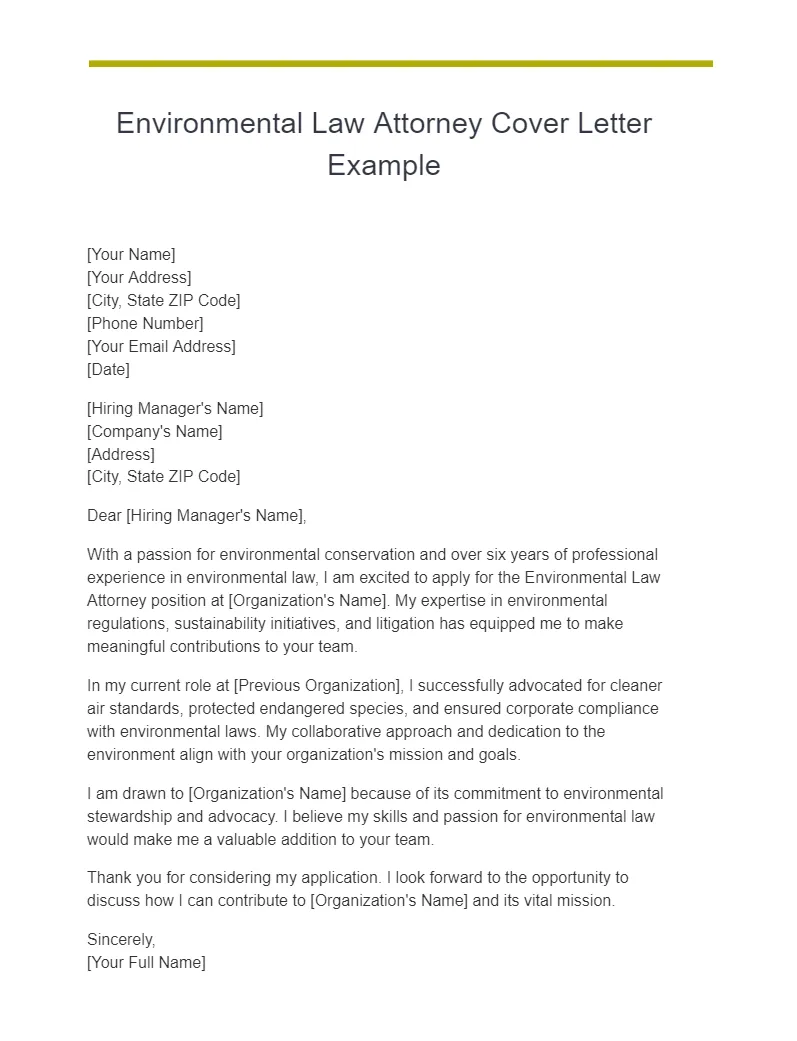Why Your Entry-Level Attorney Cover Letter Matters
An entry-level attorney cover letter is your first opportunity to make a strong impression on potential employers. It’s more than just a formality; it’s a crucial tool that allows you to introduce yourself, highlight your qualifications, and express your enthusiasm for the position. In a competitive job market, a well-crafted cover letter can set you apart from other candidates and significantly increase your chances of landing an interview. It provides a platform to demonstrate your writing skills, attention to detail, and understanding of the legal field. Moreover, it enables you to personalize your application and show how your specific skills and experiences align with the requirements of the job. Your cover letter serves as a snapshot of your professional identity, making it an essential element in your job application strategy.
What to Include in Your Entry-Level Attorney Cover Letter
A comprehensive entry-level attorney cover letter should include several key components to effectively showcase your qualifications and personality. First, you’ll need to provide your contact information, the date, and the hiring manager’s details. Next, craft a compelling opening paragraph that grabs the reader’s attention and clearly states the position you are applying for. The body paragraphs should highlight your relevant experience, legal skills, and how you meet the job requirements. Make sure to articulate your passion for law and the specific firm or organization. Conclude with a strong call to action, such as requesting an interview. Finally, proofread your cover letter meticulously to eliminate any errors and ensure a professional presentation. Remember, each element plays a vital role in presenting you as a competent and enthusiastic candidate.
Contact Information and Date
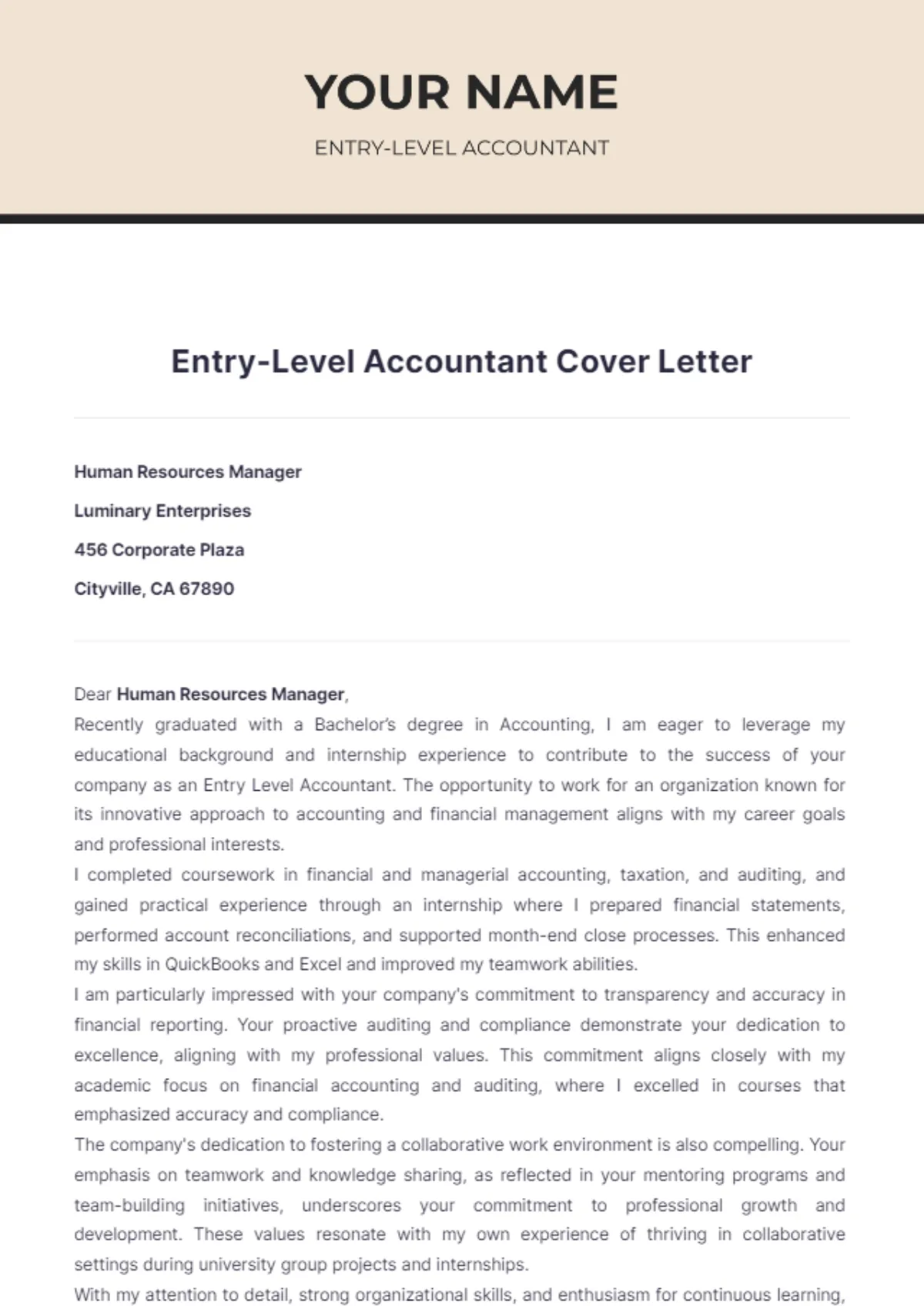
Begin your cover letter with your contact information in the upper left-hand corner. This should include your full name, address, phone number, and professional email address. Ensure that your email address is professional and appropriate. Following your contact information, include the date on which you are submitting the cover letter. This helps the hiring manager understand when you applied and keeps the application process organized.
Hiring Manager’s Name and Title
If possible, address your cover letter to a specific hiring manager or the person responsible for reviewing applications. Researching the name and title of the hiring manager adds a personal touch to your letter. It demonstrates your initiative and interest in the firm. Use a formal salutation such as “Dear Mr. Smith” or “Dear Ms. Johnson”. If you cannot find the name of the hiring manager, use a general salutation like “Dear Hiring Manager” or “Dear [Law Firm Name] Hiring Team”.
Opening Paragraph Grab the Reader’s Attention
The opening paragraph is your chance to capture the reader’s interest and immediately establish your purpose. Start with a strong opening statement that identifies the specific position you are applying for and how you found the job. Briefly mention what excites you about the opportunity or the firm. Clearly state your intention to apply for the position and express your enthusiasm. This sets the tone for the rest of your letter and encourages the reader to continue reading. Avoid generic openings; instead, personalize it to show genuine interest.
Body Paragraphs Showcase Your Skills
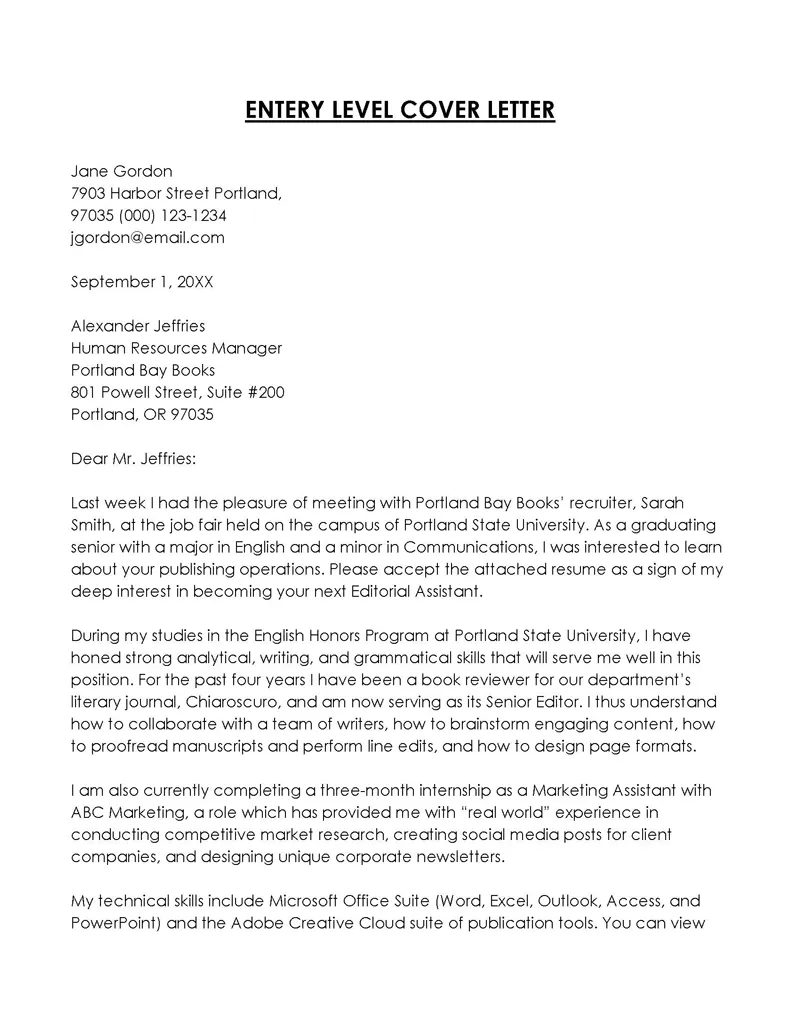
The body paragraphs are the core of your cover letter, where you elaborate on your skills and experiences. This is where you connect your qualifications with the job requirements. Focus on providing specific examples that demonstrate your abilities and achievements. Use the STAR method (Situation, Task, Action, Result) to provide a clear and compelling narrative. Tailor each paragraph to highlight the skills and experiences most relevant to the position, using keywords from the job description to show your understanding of the role. By presenting your skills and experiences in a structured and engaging manner, you increase your chances of making a lasting impression.
Highlight Relevant Experience
Emphasize any legal-related experience you’ve gained through internships, clerkships, volunteer work, or previous employment. Describe your responsibilities, the skills you developed, and the outcomes you achieved. Quantify your accomplishments whenever possible; for example, mention the number of cases you assisted with or the research projects you completed. Explain how your experience aligns with the requirements of the job. Be specific about the types of legal work you’ve performed, such as legal research, drafting documents, or client communication. Showcase the value you brought to each role and how it prepared you for the entry-level attorney position.
Emphasize Your Legal Skills
Highlight key legal skills such as legal research, writing, analysis, negotiation, and advocacy. Provide examples of how you have used these skills effectively. Describe specific research tools or databases you are proficient in. Showcase your writing abilities by mentioning legal documents you have drafted, such as memos, briefs, or pleadings. Emphasize your analytical skills by discussing how you have analyzed legal issues and provided solutions. If you have experience in negotiation or advocacy, describe how you used these skills to achieve positive outcomes. The goal is to illustrate your ability to perform essential legal tasks competently.
Address the Job Requirements
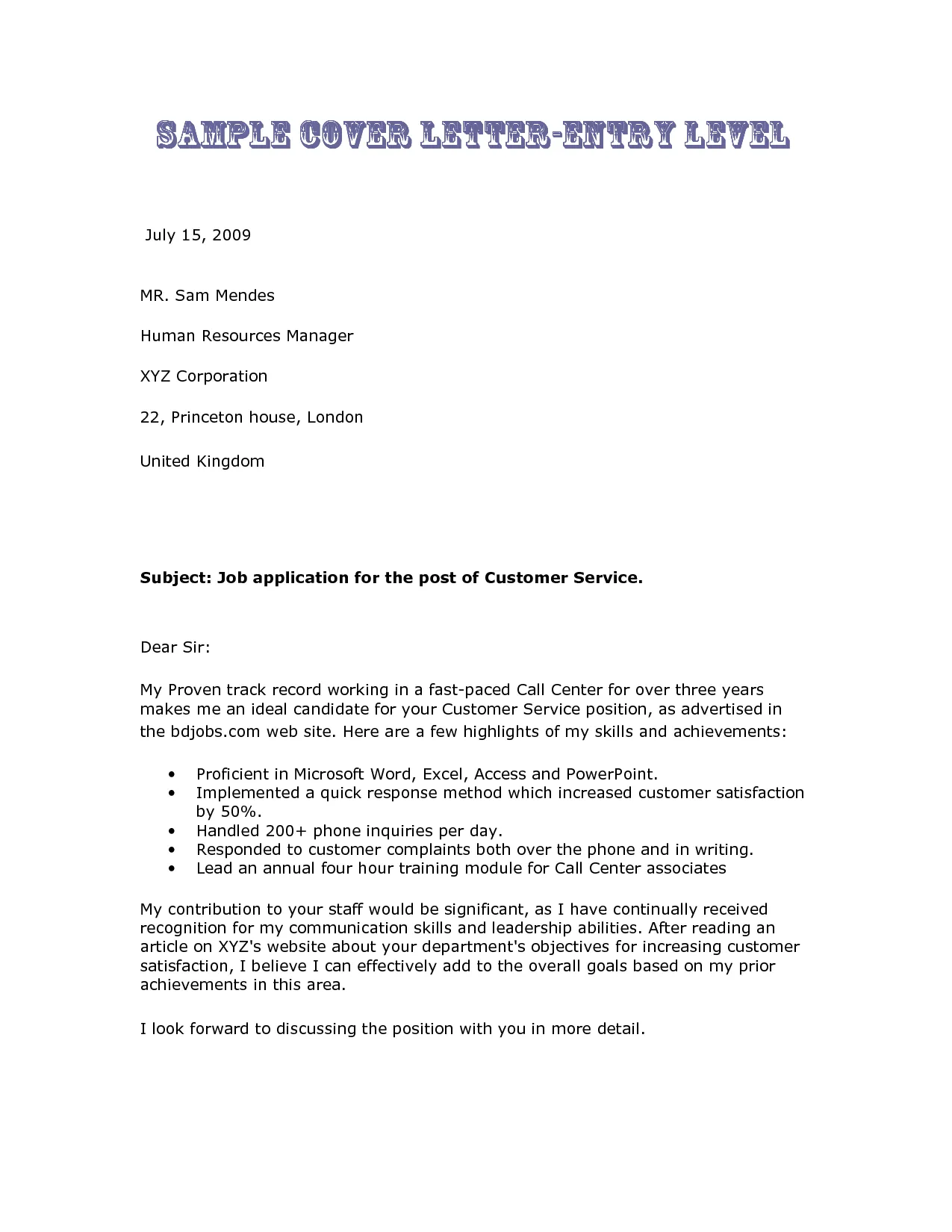
Carefully review the job description and address each requirement in your cover letter. Identify the key qualifications the employer is seeking and provide clear examples of how you meet those requirements. Tailor your cover letter to demonstrate how your skills and experiences align with the specific needs of the role. This shows that you understand the position and have the capabilities to succeed. Mention any software or tools the job requires, and explain your proficiency. By directly addressing the job requirements, you prove you are a strong candidate.
Showcase Your Passion for Law
Demonstrate your enthusiasm for the legal profession and the specific firm or organization. Explain why you are interested in the type of law practiced by the firm. Mention any values or goals that align with the firm’s mission. Express your interest in learning and growing within the firm. Show that you have researched the firm and are genuinely excited about the opportunity. This passion can set you apart from other candidates and show that you are committed to your career.
Closing Paragraph Call to Action
In your closing paragraph, reiterate your interest in the position and express your enthusiasm for the opportunity. Thank the hiring manager for their time and consideration. Clearly state your availability for an interview and how they can contact you. Include a specific call to action, such as “I look forward to discussing my qualifications further in an interview” or “Thank you for reviewing my application. I am available for an interview at your earliest convenience.” Ensure your closing is professional and leaves a positive final impression.
Proofreading and Editing Your Cover Letter
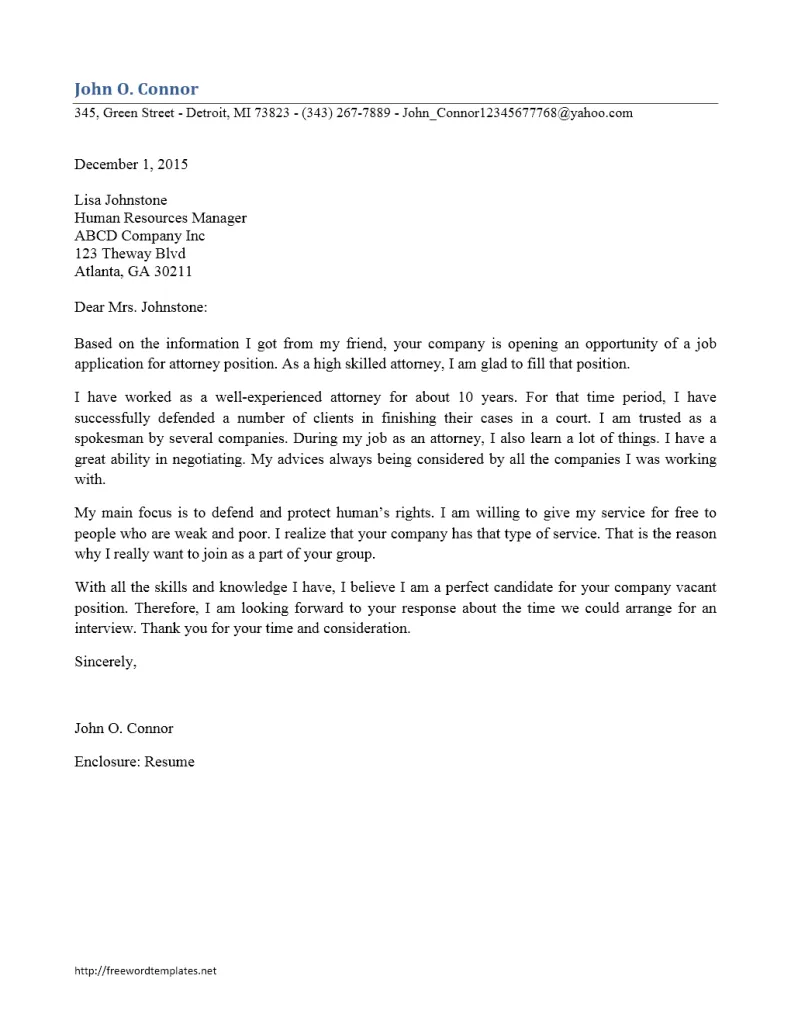
Before submitting your cover letter, proofread it thoroughly to eliminate any errors in grammar, spelling, or punctuation. Read your cover letter aloud to catch any awkward phrasing or unclear sentences. Consider asking a friend, mentor, or career advisor to review your cover letter for feedback. Ensure that your cover letter is well-organized, easy to read, and free of typos. A polished cover letter demonstrates attention to detail and professionalism, making a positive impression on the hiring manager.
Common Mistakes to Avoid
Avoid common mistakes that can hurt your chances of getting an interview. Do not use generic cover letters, always tailor your letter to each specific job. Avoid typos and grammatical errors. Do not be overly formal or use jargon that the hiring manager may not understand. Avoid mentioning salary expectations unless explicitly requested. Avoid negative language or discussing why you left a previous job. Do not exceed one page in length. By avoiding these common mistakes, you can improve the effectiveness of your cover letter.
Formatting and Design Tips
Use a professional font such as Times New Roman, Arial, or Calibri. Keep the font size between 10 and 12 points for readability. Use single spacing within paragraphs and double spacing between paragraphs. Use clear and concise language. Structure your letter with clear headings and subheadings. Ensure your cover letter is visually appealing and easy to scan. Avoid excessive use of bolding, underlining, or italics. By following these formatting tips, your cover letter will be professional and visually appealing.
